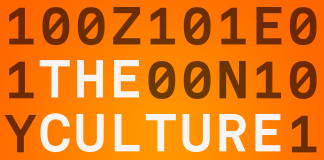
Why Work Doesn’t Happen at Work by Jason Fried

Read the summary below and get the key insights in just 10 minutes!

Where do you go if you really want to get work done? If you are like most people, you probably work best “anywhere but the office.” If you must concentrate and focus on something, you need uninterrupted time. However, most individuals cannot get that at their workplace. Jason Fried, a web consultant, presents this problem in a way that will have many viewers nodding their heads in agreement. But are fewer meetings and less face-to-face interaction really the solutions? getAbstract recommends this presentation to people who have ever wondered why they cannot get anything done at work.
[/text_block]

- Why most people are not productive in the office during working hours, and
- What you can do about it.

Companies and nongovernmental organizations build offices to enable their employees to come together to accomplish great work. However, people will tell you that if they need to get something important done, they don’t go to the office. They might do their crucial tasks in a library or in their homes; they might do them outside office hours or while they are commuting.
At the office, your day becomes splintered: Instead of a whole workday, you are left with 20 minutes here and 20 minutes there; you make phone calls, go to meetings, talk to people. But when the day is over, you notice that you haven’t finished you work.
“Businesses are spending all this money on this place called the office, and they’re making people go to it all the time, yet people don’t do work in the office?”
“You cannot ask someone to be creative in 15 minutes.” Especially in “creative jobs,” you need a long stretch of time without breaks to achieve something. And yet, at most offices that is impossible for the majority of workers.
“Meetings are just toxic, terrible, poisonous things.”
Work and sleep have a key trait in common: Neither is productive if you are interrupted. When you sleep, you pass through five stages until you get to truly restful slumber. However, if you are interrupted, you return to the first stage. A similar pattern occurs if someone or thing disrupts your work. Contrary to what many managers think, surfing the web does not obstruct people’s productivity; “managers and meetings” do. Meetings interrupt the participants’ day. And because participating employees cannot work during meetings, these events are costly too.
Three small changes can make the office a better place to accomplish productive work:
“Meetings procreate. One meeting leads to another meeting.”
- Introduce “no-talk Thursdays” – Or prescribe total quietness for just one afternoon per month.
- Encourage “passive models of communication” – Communicate via email and instant message. That way, people can choose when the interruption takes place.
- “Cancel meetings” – You will notice that they weren’t even necessary.
[/text_block]

Jason Fried is a software entrepreneur. He co-founded 37signals, a Chicago-based software company that builds web-based productivity tools. He co-wrote Rework, which rethinks the idea of work.
[/text_block]

Get key insights from 15,000+ non-fiction books at GetAbstract.com.
[/text_block]




